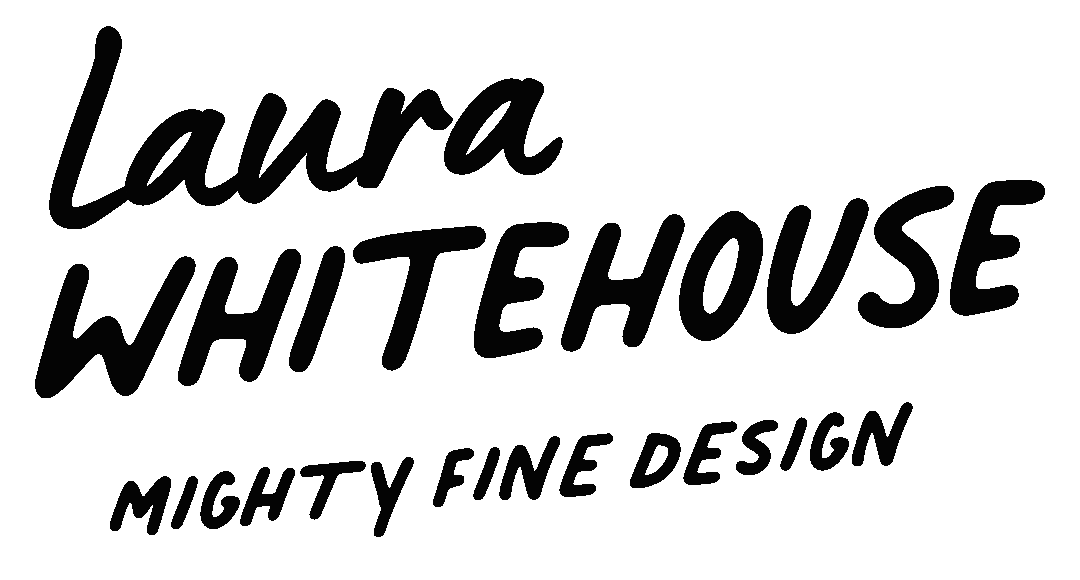How designers can help build your brand (without breaking the bank)
Whether you’re the founder of a small business, the man-child owner of a rubbish social media platform, or the brilliant and charismatic mastermind behind a world-class design blog that my mum “sometimes reads,” you won’t get very far without professional branding. And even then, it might not save your rubbish social media site.
Or course, that’s easy to say if you’re conveniently able to brand your own blog (yes mum, I’m keeping the yellow, I’m sorry, I LIKE IT) but, for almost everyone else, professional branding means hiring a professional designer, which means paying professional money. That may not be a problem if you’ve got Tesla cash to chuck around, but if you’re just starting out and actually need that money for food and rent and stuff, then it can be an issue.
So what to do? You could hire a designer full-time to help build your entire brand from the ground up - though unless your business happens to involve a literal goldmine, best to not go bankrupt for the sake of “The Vibe”. Instead, consider hiring a professional designer to create the foundations of your brand — that way you can start building the visibility of your brand now, and you can always finish the job later when you’re literal-goldmine rich.
The foundations of a good brand
If you’re looking to establish a brand but are wary of the costs, don’t panic: many professional designers are happy to work on a sliding scale (though not for free, so please never ask them that). You might have to temper down your wildest branding dreams - but you’d be surprised just how far a brand identity can go with only the bare necessities (🎶 the simple bare necessities 🎶).
To keep prices down, I recommend starting off getting the following brand foundations done professionally for your business:
Logo in full colour. There’s nothing more foundational than a company logo — useful for everything from social media posts, to presentations, to sticking up on your office door.
Logo in all black and all white. It’s good to have options, and standard black/white versions of your logo are handy for watermarks, embroidery, formal letters, and more.
Basic colour palette. Nothing helps ensure consistency for your brand like a set colour palette. A designer can supply you with codes and a limited colour selection to ensure everything your brand produces feels uniform and professional.
Basic fonts. A lack of font consistency is a dead giveaway that your business is just finding its feet, so it helps to get a professional to pick out a set that you can stick to. Remember how much we all made fun of Avatar for using ‘Papyrus’? Don’t make the same mistake as that sucker James Cameron.
Social Templates. Platforms like Canva are growing in popularity as they help non-designers create nicer-looking social media posts. If you’re feeling confident, you can ask your designer to pick out or create some useable templates for you to stick to.
Ultimately, no matter your budget, it’s crucial to get these foundations down: customers and clients have come to expect a certain level of consistency in how a brand communicates itself to its audience. Hiring a designer ensures that everything lines up perfectly with the brand you’re trying to create — you just have to get in touch first.
Approaching a designer for branding foundations
I don’t know why I feel the need to say this in every post, but if you haven’t reached out to a designer before, please know there’s nothing to be afraid of. Any reports saying we’re all secretly parasites who feed off your social and creative anxieties are baseless exaggerations, I promise.
If you’re feeling particularly anxious, I’ve written a whole piece on what to watch out for when you’re hiring a designer to keep you on the right track, especially when it comes to managing your budget. Remember: it’s perfectly normal to ask for a bespoke quote before any work is undertaken, and it benefits both of you to know well in advance just how much work is involved.
I’ve also written the absolute and very real rules for briefing a graphic designer, which I recommend you read if you’re worried about how to get your exact ideas across to a designer. As a note, remember you’re allowed to reference other brands and even potential competitors if it helps get your idea across — anything you can give the designer to help them understand your industry will likely be much appreciated. (No, mum, I did not rip off Flora butter, stop telling people that.)
Branding options: what else could I get?
I often talk about the idea of a wider brand and how we can use various different forms of media to express our identities. Think of all the photography used in Apple marketing, for example — that’s pretty consistent, right? Or the way Daye Tampons or Red Bull use stylised illustrations to make their brands stand out? That’s not me saying “what the world needs is more Red Bull cartoons” — please God, no — though, you have to admit, they do stand out.
There are so many potential ways to create key visual identifiers for a brand, and if you’re open to adding a touch more personality to yours, designers can help you hone in on your niche. Plus, if you feel like doing a little homework before getting anyone involved, you can always try finding design inspiration on your own terms — it might just help your designer bring out exactly what you’re looking for in your brand.



